The Club Advantage Equipping Students with Essential Skills at Private Universities
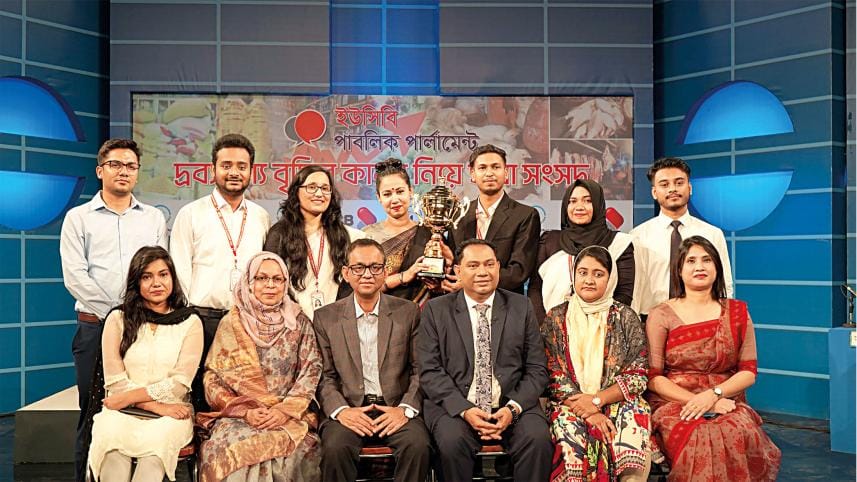
Private universities in Bangladesh are often celebrated for their academic rigour, state-of-the-art research facilities, and vibrant student life, with university clubs playing a significant role in fostering a sense of community. These clubs offer students opportunities for leadership, teamwork, and the practical application of academic theories. They promote inclusivity, bridge gaps between diverse student populations, facilitate networking, and prepare students for the competitive job market. Additionally, they provide a platform for students to pursue their passions and discover new interests, enriching their overall university experience.
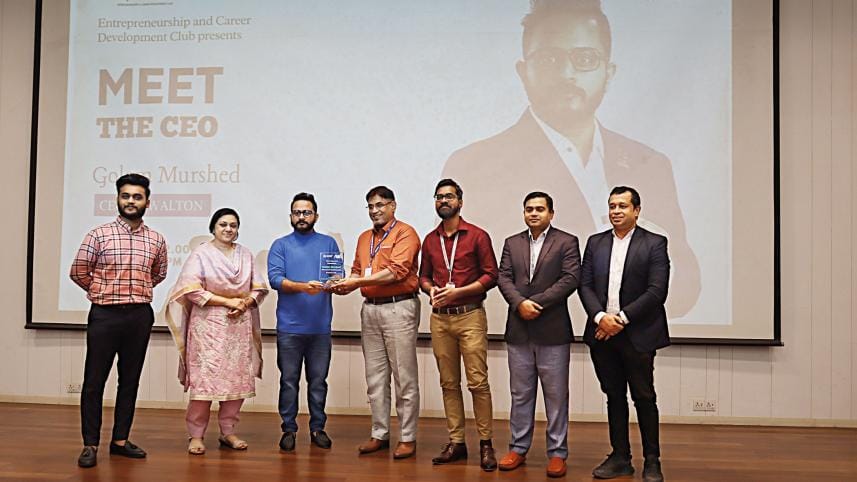
This article explores the dynamic world of clubs at private universities in Bangladesh, emphasizing their crucial role in enhancing the educational experience, fostering personal development, and preparing students for successful careers.
Clubs offer students opportunities for leadership, teamwork, and the practical application of academic theories. They promote inclusivity, bridge gaps between diverse student populations, facilitate networking, and prepare students for the competitive job market.
Types of clubs at private universities and some of their biggest achievements
The various types of clubs in universities include academic and professional clubs, cultural and international clubs, art and performance clubs, sports and recreational clubs, social and community service clubs, and special interest and hobby clubs.
BRAC University has 31 clubs to nurture students and help them develop the skills and qualities needed for leadership roles. These clubs encompass academic, cultural, sports, and community service activities.
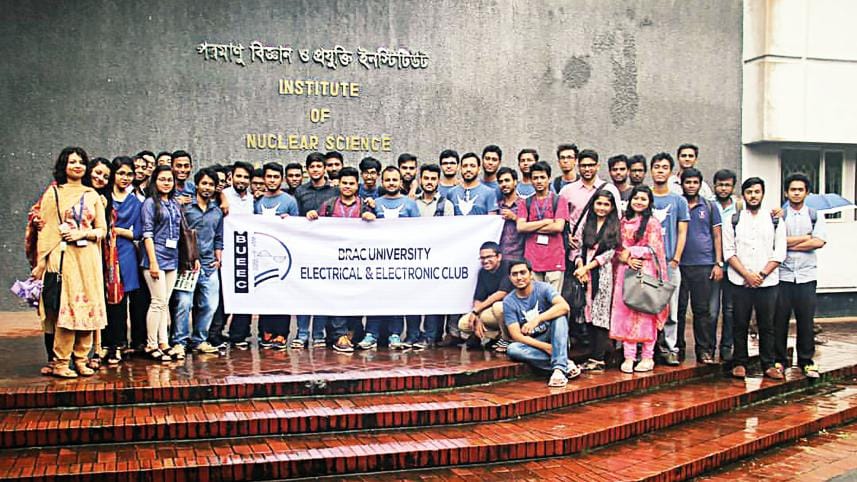
The Robotics Club at BRAC University has consistently achieved top ranks in national and international robotics competitions, showcasing its excellence in innovation and engineering. They have developed autonomous robots for various real-world applications, ranging from disaster management to healthcare assistance. Among their achievements, the underwater vehicle BRACU Duburi was the runner-up in Robosub 2023, while the next-generation Mars rover Mongol-Tori achieved third place in the URC rover competition of 2020, according to the Office of Communications at BRAC.
Ahsanullah University of Science and Technology (AUST) has clubs such as Robotics, Mechatronics, Design & Innovation, and Debate, among others. Some of these club members have been regularly participating in robotics, mechatronics, or computer programming competitions and winning them, often abroad.
"A group of AUST CSE students recently won the UAP Interuniversity Collaborative Programming Contest. Another group became champions in the ATS-DUDS Anti-Violent Extremism Debating Competition, organized by Dhaka University Debating Society," shared Prof. Dr. Mohammed Mahbubur Rahman, Acting Vice Chancellor, AUST.

"Northern University Bangladesh (NUB) offers a variety of department-specific clubs where students take the lead, practicing leadership and democratic principles under the guidance of faculty advisors. Our active clubs include the CSE Club, Textile Club, Northern Centre for Skill Development, Business Entrepreneurship and Leadership Club, Debate Club, Language Club, Pharmacy Club, EEE Club, and Robotics Club. These clubs at NUB organize career-related programmes, skill development sessions, and competitions that help students develop skills such as public speaking, communication, critical thinking, and problem-solving," mentioned Prof. Abu Yousuf Md. Abdullah, Chairman of Northern University of Bangladesh.
A team from the NUB's CSE Club won the Robi R-Venture competition and secured a fund of BDT 1 million from the ICT Division, demonstrating their innovation and entrepreneurial spirit. Furthermore, the university was awarded the "Best University Award" at the 16th National Debate Carnival 2024, organized by the National Debate Federation Bangladesh (NDF BD), highlighting its excellence in debate and public speaking.
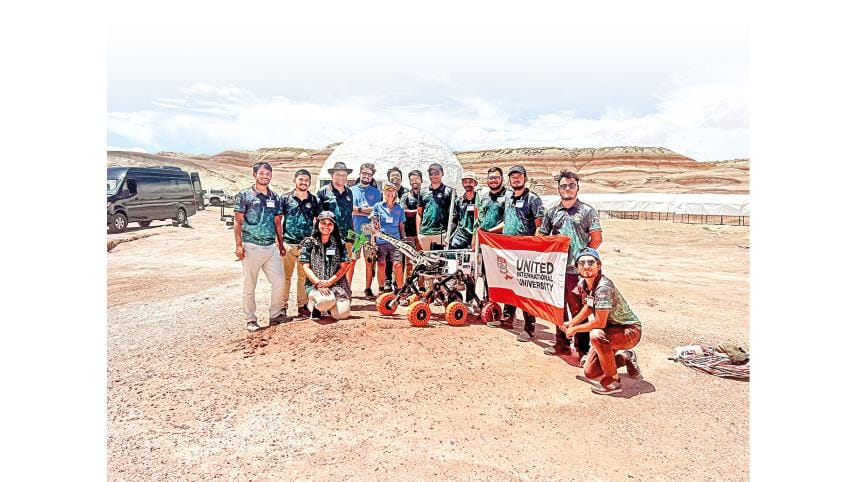
"Uttara University (UU) has a total of 12 clubs. One of the biggest achievements was by the 'Uttara University Social Services Club' when it arranged a programme called 'Uttara Clean' on 24th November 2018. Approximately 100 members of the club engaged themselves in cleaning the roads of Sector 4 and 6 with essential materials. Residents and pedestrians of those areas appreciated the initiative wholeheartedly, and it was a successful program indeed," said Professor Dr. Eaysmin Ara Lekha, Vice-Chancellor of the Uttara University.
State University of Bangladesh (SUB) has an array of clubs for students to participate in, including the Cine and Drama Club, Business Club, Sports Club, Photography Club, Music and Dance Club, Debating Society, Computing Club, and more.
International Standard University (ISU) has clubs such as the English Language Club, Cultural Club, IT Club, Textile Club, and Business Club to foster growth for the students and prepare them for the job market.

How students are prepped for the job market by the clubs
BRAC University clubs provide opportunities for students to develop leadership, communication, and teamwork skills, preparing them for the job market. Activities such as case competitions, workshops, and volunteering initiatives enhance students' soft skills and professional readiness. Irrespective of the type of club, every club at AUST offers opportunities for their members to hone soft skills like leadership, collaboration, communication, problem-solving, and innovation. These generic skills help graduates meet the demands of job requirements.
At NUB, each club offers a range of co-curricular activities designed to enhance students' job market readiness and soft skills. For instance, the CSE Club hosts coding competitions, hackathons, and tech workshops, while the Business Entrepreneurship and Leadership Club conducts seminars on business strategy and leadership training. The Debate Club organizes tournaments that improve public speaking and critical thinking. Similarly, the Robotics Club provides hands-on projects and competitions that foster teamwork and technical skills. These activities ensure students are well-prepared for their future careers by developing both technical and soft skills.
At Uttara University, faculty members and the board emphasize hands-on learning. Internships, co-ops, and project-based learning give students real-world experience alongside their academic education. Partnerships with regional and international businesses allow students to work on real-world projects and develop skills directly relevant to their future employment. These programmes together ensure that UU students are not only ready to join the workforce but also able to succeed and adapt in a fast-changing job market.
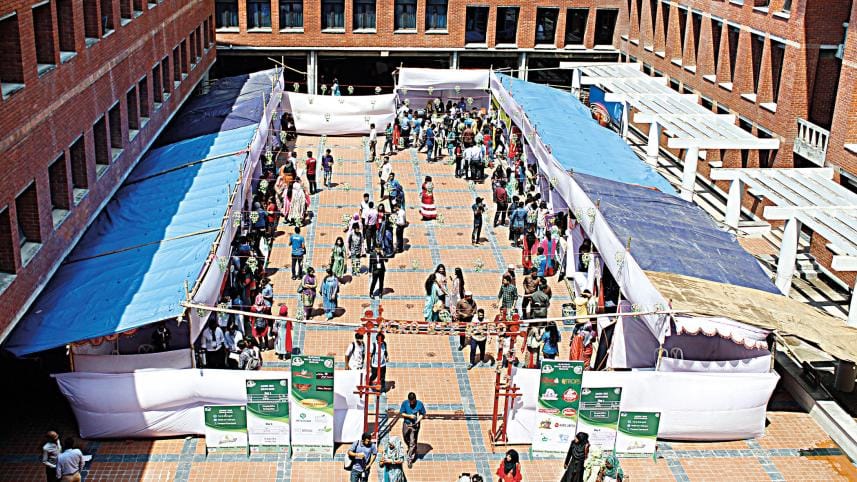
"In addition to academic and practical skills, at SUB, we recognise the importance of soft skills in the professional world. Therefore, we offer a variety of extracurricular activities, workshops, and seminars focused on developing communication, leadership, teamwork, and problem-solving skills. These programmes are designed to cultivate well-rounded individuals capable of adapting to diverse and dynamic work environments," said Prof. Dr. Chowdhury Mofizur Rahman, Vice Chancellor, State University of Bangladesh.
"ISU has made successful and active collaborations with a range of corporate houses. This helps our students enhance their capacity in the right direction and apply their knowledge and skills for career development. Furthermore, we have founded the Center for Higher Studies and Career Development (CHSCD), which aims to provide job opportunities for current students who are financially weak and may not be academically strong enough to qualify for scholarships or tuition waivers. This allows them to pursue their university studies unhindered," said Prof. Dr. Abdul Awal Khan, Vice Chancellor, International Standard University (ISU).
Universities anticipate their clubs becoming dynamic spaces for students to explore their passions, foster interdisciplinary connections, and make lasting contributions to campus life.
"We envision that our clubs will grow into even bigger hubs for fostering entrepreneurship, social impact projects, and academic excellence, contributing significantly to the university's vibrant community and beyond," said BRAC University officials.
"Clubs are popular, and new groups are emerging every semester encouraged by the authority. It seems that in the future, new clubs will be dominated by the urge to develop members' innovation, problem-solving, and enterprising skills," said Prof. Dr. Mohammed Mahbubur Rahman, Acting Vice Chancellor, AUST.
"We envision our clubs growing by expanding their activities, increasing industry collaborations, and incorporating more diverse and advanced skill development programs. Our goal is to foster a culture of continuous learning and innovation, encouraging students to take initiative. All students need to pursue their passions and interests and find recreational time beyond serious studies, and participating in our clubs opens up greater opportunities for them to do so," said Prof. Abu Yousuf Md. Abdullah, Chairman, Northern University of Bangladesh.
"We are guiding the students to explore and utilize their capabilities and strengthen their critical thinking, analytical, and leadership skills to enable them to frame the vision of their respective careers to face the challenges in global settings through our exclusive clubs. To establish joint collaborative initiatives, we have made several MoUs with corporate houses working in different disciplines. One of the major objectives of these initiatives is to deploy our students as interns in their establishments," said Prof. Dr. Md. Shah-E-Alam, Vice Chancellor, Shanto-Mariam University of Creative Technology.
Clubs at private universities are not just extracurricular activities; they are pivotal in shaping well-rounded, socially aware, and professionally prepared individuals. They enrich the university experience, provide a sense of community, and equip students with skills beyond academic achievements. By participating in these clubs, students are not only pursuing their interests but also preparing for future success in their personal and professional lives.



 For all latest news, follow The Daily Star's Google News channel.
For all latest news, follow The Daily Star's Google News channel.
Comments